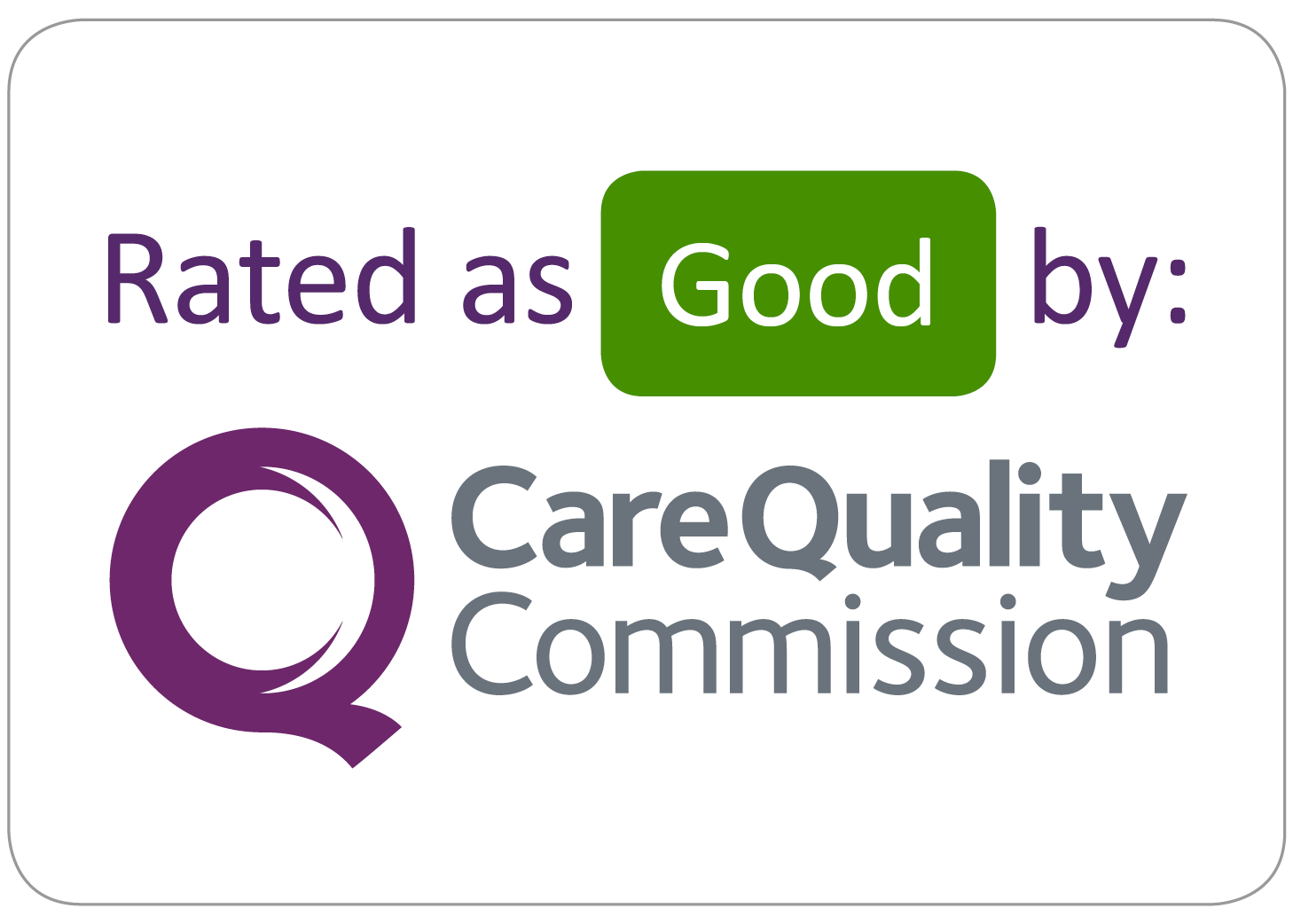Think you may be in labour?
Labour can start at any time and sometimes it begins before 37 weeks which is pre-term, or premature labour. If you think labour has started before 37 weeks, always call Maternity Assessment Centre for advice.
If you are planning to give birth at home or on a Birth Centre you can contact there directly if your labour starts spontaneously between 37 and 42 weeks gestation.
Signs of labour
There are several signs that labour might be starting, including:
- contractions or ‘tightenings’
- a ‘show’ when the plug of mucus from your cervix (entrance to your womb, or uterus) comes away. This is a jelly like substance and may sometimes be streaked with blood.
- backache
- an urge to go to the toilet, which is caused by your baby's head pressing on your bowel
- your waters breaking
The early (latent) stage of labour can take some time, and it can stop and start, particularly if this is your first baby. If you have any concerns during this period and need some advice, you can always call Maternity Assessment Centre / Birth Centre and speak to a midwife.
Listen to a recording of a conversation about early labour with one of our Midwives
Early Labour conversation transcript
I’ve been getting some pains and I think I might be in labour I was just wondering what I should be doing
Ok are you happy to tell me a little bit more about what has been going on? So, what time did your pains start?
They started a few hours ago just every now and again
Ok and how often would you say they are coming?
They are coming probably about every 10 minutes I think
And roughly how long would you say they last for?
Oh I’m not really sure they don’t last very long but they are really sore when they come.
Ok not a problem. And have you tried anything as yet, have you tried having a bath or a hot water bottle or anything at all?
Oh no I haven’t tried anything yet, I just thought I should ring in case I was in labour
That’s absolutely fine. Is it your first baby?
Yes
Ok so what I will talk to you about first of all is the changes that your cervix needs to go through when it’s your first baby, there are so many changes it has to go through, so first of all it needs to soften then it has to flatten from top to bottom get really nice and thin and soft and stretchy and it will dilate a little bit when it’s doing those things um but that’s why we don’t class you as in established labour until you are a good 4 to 5 centimetres dilated and to get to that point the cervix has a lot to go through
So, your body may be doing this kind of thing for a good few days, sometimes, your body might do these little tightening’s, these regular tightening’s for a few hours, and then it might settle down and then it might start up again and that’s why your body is having a little bit of a rest in between each of the changes the cervix does. So, there’s quite a few little things you can do to help yourself at home, everything that you are going through is completely normal. so please don’t worry.
The first thing you can try is to take a deep warm bath, so you want to make it as deep as you can get it, try to cover your entire bump with the water, if you cant get it that deep use um like a hand towel or tea towel soak it in the warm water and lay it right over your bump, keep splashing the water up on to it and just try and stay in there for a good half an hour.
Let your uterus really relax, it might help them to get a bit closer together, a bit stronger, fantastic just ring us back, and we can chat to you a bit more, maybe bring you back in at that point and check you over, or it might settle it down. If it settles it down, I don’t want you to worry it doesn’t mean its stopped labour it’s just means it’s not established labour at the moment, and it gives you the opportunity to get a bit more rest or if its during the day just potter about do your own normal daily routine and then you know it will start back up again in a few hours later.
You could always try some paracetamol and you could have a couple of paracetamols before you get in the bath so the two can combine quite well if it is early labour and if it doesn’t by all means ring us back afterwards. You have got the option to come in now if you would prefer just for some reassurance to be checked over, that’s absolutely fine, you need to do what you’re happy with
Your partner, he or she can be in the bathroom with you um if you haven’t got a hand towel and the bathwater isn’t deep enough they can be pouring the jug of warm water over you.
If you find you’ve got backacke, I don’t know where do you feel the majority of your pain, is it at the front is it at the back?
It seems to be both its mainly at the front but sometimes its really sore at the back
Ok so your partner, like I say, he or she can always be doing a bit of massage, some nice firm pressure on your lower back usually works quite well, its up to you whether or not you want him or her to rub or just to put some constant pressure on that area, that usually works quite well as well um.
Is baby moving ok, are you happy with baby’s movements?
Yeah, it seems to be fine
Lovely so do keep an eye on them, they shouldn’t change in any way so if you’re concerned in any way about your baby’s movements then you must ring us. Do you think your waters have gone, have you had any loss from down below?
No no
OK fantastic, so if you do think they’ve gone, when you’re out of the bath maybe keep a maternity pad on just so you can observe any loss. You might find that you have a mucousy loss which is your show, that’s very normal, it could be clear it could be a bit blood stained but as long as it doesn’t look heavy like the start of a fresh period, that’s absolutely fine, again if it does look fresh then you need to give us a little ring.
If you think your waters have gone you might feel a pop, you might have a big gush or you might have just a constant trickle that you notice that looks like clear water, um give us a little ring and we will have a chat but at that point we might bring you in as well just to check you over and confirm that it is the waters around baby. Does that sound ok to you do you feel like you need to.
Yes, if I am a bit nervous about getting in the bath because it’s so deep could I have a shower instead
Yes of course you could if your shower head comes off maybe take it off and direct it on your bump just so it’s a bit closer, the heat from the water that might help a little as well, as I say a hot water bottle, heat packs are good if you are out of the bath or shower, and see if that makes you feel a little bit better.
And um a friend of mine said they had a Tens machine, what’s that?
Ok yeah, so a Tens machine is really good, more if you’ve got a lot of back pain, um they do tend to work really really well in early labour, it kind of mimics your partner rubbing your back it acts by kind of cutting out the pain signal the nerves that send the pain signal to your brain it cuts that out so you don’t notice it as much. It feels like a little electric impulse, some ladies absolutely find it fantastic, they love them, others find it a little bit nattering. But if you’ve got one to hand, I would say try it for a good half an hour at least because as it does take that long for your brain to realise whether or not it likes it or not so I wouldn’t just put it on and quickly take it off do give it a go
We have them here as well so if you do come in and it’s still quite early and you do want to try one while you are here, we can use that on you while you are here, but you can hire them as well.
But yes as I say if you prefer to come in for us to see you then that’s absolutely fine, it needs to be your decision as to what you do, but if you’re happy to try those things that I’ve suggested then I’m happy for you to be at home at the moment.
That sounds fine but um so when should I come in then?
Ok so if you’ve tried all those things that I’ve suggested and you find that your contractions are getting closer together and getting a bit stronger then ring us and we might ask you to come in at that point because as I say you’ve done all you possibly can at home and it might be that you just need a little bit more of an input from us, but I always say go by you, go by you and your partner, if you and he or she aren’t happy and you just want that extra bit of reassurance then that’s the right time. Usually we say when your contractions are round about every 5 minutes and lasting between 30 – 40 seconds um then that’s probably a good time as things are probably starting to become more established but as I say if you’ve got any concerns or you just want some reassurance that’s a good time to come in as well but do ring us before you set off so that we can get a room prepared and get everything ready for you arriving, again like I said before or if you think your waters have gone regardless of whether you are contracting then we would want to see you at that point just to confirm it is the waters from around the baby and to put a plan in place about what would happen after that.
Are there any other things I should be concerned about or watch for?
Like I say your baby’s movements are a big thing make sure your baby kind of follows its normal pattern of movements they shouldn’t change in any way so if you are concerned about those then ring us. If your waters have gone, they should look nice and clear but if they look heavily bloodstained or green or even bright yellow that can sometimes mean that baby has opened its bowels inside, so we’d want you to ring us right away. And just if you feel unwell at all, ring, yes I always say just go by how you feel, you know your body best
And is it ok for me to eat and drink as normal?
Absolutely yes, we want you to eat and drink keep those energy levels up. While it is still quite early, if it’s during the night I wouldn’t want you to be pacing about getting things going, I’d want you to be in bed and trying to sleep if you’re able to, at this point rest is really really important. But by all means if you are awake and up and about eating and drinking plenty, you probably won’t want big meals, so drinking things like your isotonic drinks as well as your water, give yourself energy back that way. Or snacking on things like biscuits, fruit, chocolate, all the bad things that you’re not supposed to eat (laughs) that will give you loads of energy and keep your hydration levels up give your body the energy that it needs to go into labour, that should help get things going for you.
Thank you very much
You are very welcome
What are contractions?
When you have a contraction, your womb tightens and then relaxes. For some people, contractions may feel like extreme period pains. You may have had contractions during your pregnancy, particularly towards the end. These tightenings are called Braxton Hicks contractions and are usually painless. Your contractions tend to become longer, stronger and more frequent as your labour progresses. During a contraction, the muscles tighten and the pain increases. If you put your hand on your abdomen, you'll feel it getting harder; when the muscles relax, the pain fades and you will feel the hardness ease.
The contractions are pushing your baby down and opening the entrance to your womb (the cervix), ready for your baby to go through.
Your midwife will probably advise you to stay at home until your contractions become frequent.
You should call Maternity Assessment Centre if booked to have your baby on labour ward or the Birth Centre if that’s where you have chosen to birth or if you are planning a home birth. You may call at any time to speak to a midwife but as general guidance, please call when your contractions appear to be in a regular pattern and:
- last around 60 seconds
- are coming every 5 minutes
- you think you are in labour
- you need pain relief
If you experience any vaginal bleeding, reduced fetal movements or any other concerns during your pregnancy or early labour, you must contact Maternity Assessment Centre for advice.
What happens when my waters break?
It's likely your waters will break during labour, but it can also happen before labour starts. Your baby develops and grows inside a bag of fluid called the amniotic sac. When it's time for your baby to be born, the sac usually breaks and the amniotic fluid drains out through your vagina. This is your waters breaking. Sometimes when you're in labour, a midwife or doctor may offer to break your waters. If your waters break naturally, you may feel a slow trickle or a sudden gush of water you cannot control. To prepare for this, you could keep a sanitary towel (but not a tampon) handy if you're going out, and put a protective sheet on your bed.
Amniotic fluid is clear and pale. Sometimes it's difficult to tell amniotic fluid from urine. When your waters break, the water may be a little bloodstained to begin with.
Call Maternity Assessment Centre if you notice that the waters are brown or smelly, or if you have any vaginal bleeding. This could mean you and your baby need urgent attention.
If your waters break before labour starts, call Maternity Assessment Centre. Use a sanitary pad (not a tampon) and bring it in to hospital with you so your midwife can check the colour of the waters.
If labour does not start after your waters break
It's usual to go into labour within 24 hours of the waters breaking. You'll be offered an induction of labour around 24 hours after your waters breaking, incase labour does not start on its own. This is due to the increased risk of infection for your baby after this time.
Until your induction, or if you choose to wait for labour to start naturally, call Maternity Assessment Centre immediately if:
- your baby moves less than usual
- there's any change in the colour or smell of any fluid coming from your vagina
You should take your temperature every 4 hours when you're awake, and call Maternity Assessment Centre if any temperatures are above 37.5ºC
There's no evidence that having a bath or shower after your waters have broken increases your risk of infection, but having sex might.
Some ways of coping with early labour
At the beginning of labour, you can:
- keep active, take a short walk, use a birth ball
- drink fluids
- have a snack, if you feel like it
- try any relaxation and breathing exercises you've learned to deal with contractions as they get stronger and more painful – your birth partner can help by doing these with you
- listen to music – Why not make a playlist you can listen to in labour?
- have your birth partner rub your back – this can help relieve pain
- take paracetamol according to the instructions on the packet – paracetamol is safe to take in labour
- have a warm bath, with the water deep enough to cover your bump
Other forms of pain relief can be found here Pain relief in labour - NHS (www.nhs.uk) (links to an external website)

















